Our primate conservation conference 2014, in pictures

This past weekend, we held our 13th biennial Supporters’ Meeting on the grounds of the IPPL sanctuary. We hosted primate field workers from Africa, Asia, and the Americas, all from projects that IPPL has helped to support—sometimes for years!
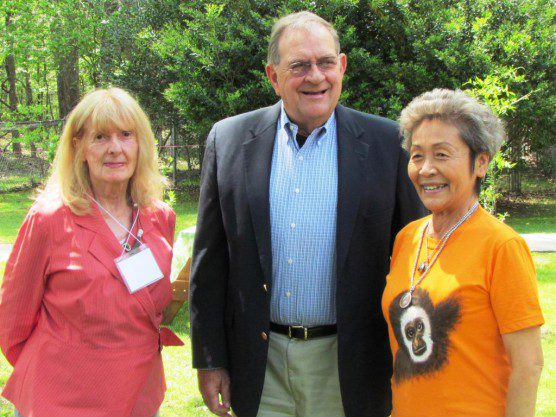
Left to right, Shirley McGreal, Summerville Mayor Bill Collins (who opened the conference for us) and Pharanee Deters from the Highland Farm sanctuary in Thailand, at Friday afternoon’s meet-n-greet.
Attendees were able to interact one-on-one with our visiting speakers, enjoy the spring sunshine, and dine on a variety of yummy vegetarian dishes. They also got to know our 36 sanctuary gibbons—in person and via a special presentation prepared by our Animal Care staff, titled “The Secret Life of the IPPL Gibbons.”
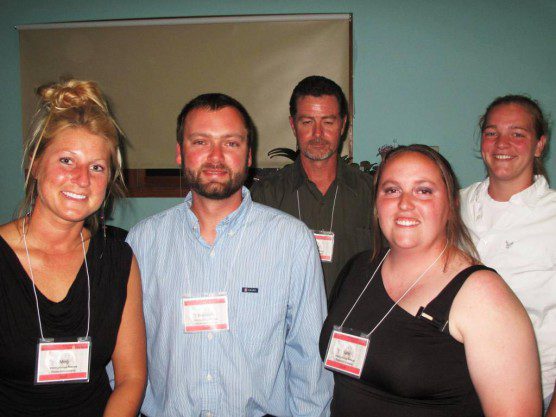
Left to right, Meg McCue-Jones, Brandon Spivy, Hardy Brown, Samantha Martin, and Rachel Schleicher, IPPL’s top-notch Animal Care team, gave a fun presentation Saturday evening focusing on their experiences with the IPPL gibbons.
We’re grateful for everyone who helped make the weekend-long event such a success, including the many donors who contributed funds or Silent Auction items (even if they could not attend in person) and our trusty volunteers. This year’s Silent Auction featured an amazing variety of handicrafts from primate habitat countries, as well as jewelry, unique gifts, and primate-themed decorative items.
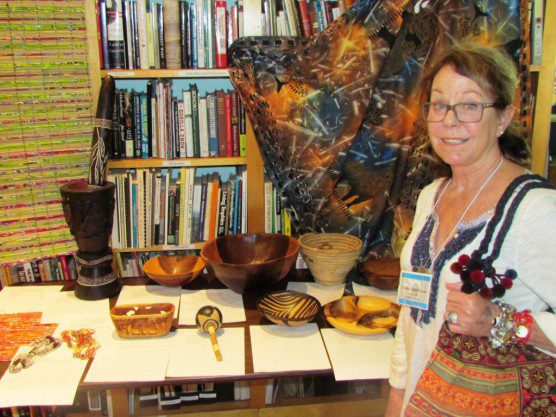
IPPL Board member Dianne Taylor-Snow checks out our impromptu African bazaar (really, our Silent Auction), the proceeds of which will benefit overseas sanctuaries.
All our past conferences have included a diverse roster of remarkable speakers, and this year was no exception:

[field name=”keri-cairns-interview”]
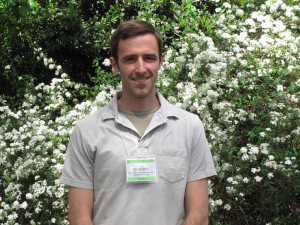

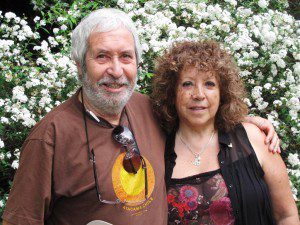
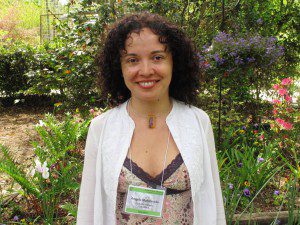
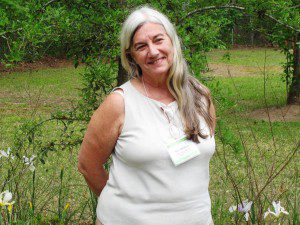
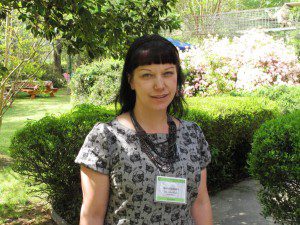

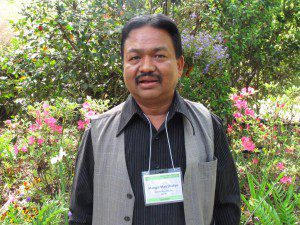
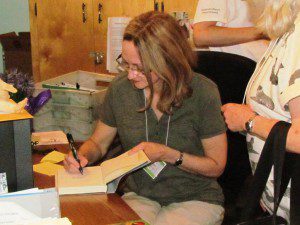


And of course, IPPL’s own founder and executive director, Shirley McGreal, who reminded us of all the dozens of other primate sanctuaries, rescue centers, and activist groups that IPPL helps support, in a presentation that wove together her remembrances of absent friends with a showcase of some remarkable primate postage stamps that are now part of IPPL’s archives.
Below are some of our favorite photos from the meeting. And if you have pictures or videos you’d care to share, please send them along to info@ippl.org or post them on IPPL’s Facebook page. We’d love to hear from you!
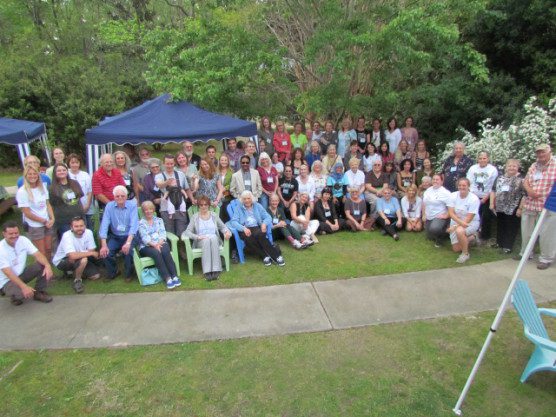
The gang’s all here!
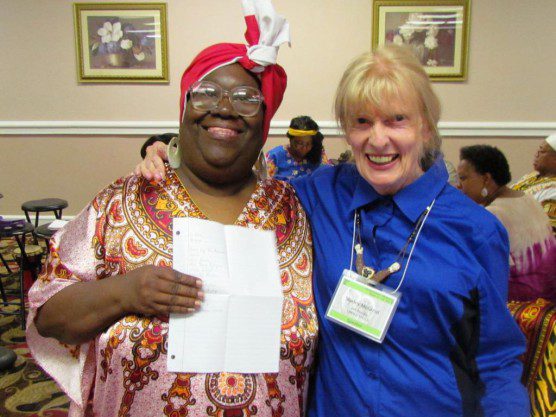
Shirley always has a list–“The List”–of her favorite traditional Southern spirituals, which the Plantation Singers performed with their usual gusto.
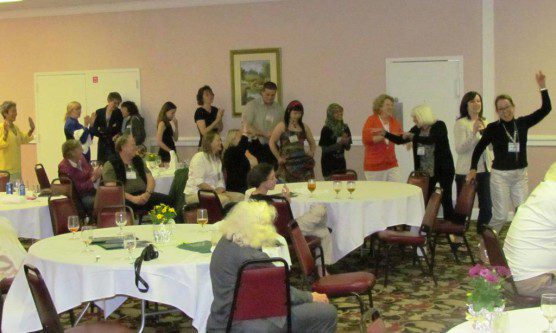
“When the Saints Go Marching In”–and IPPL’s famous conga line!
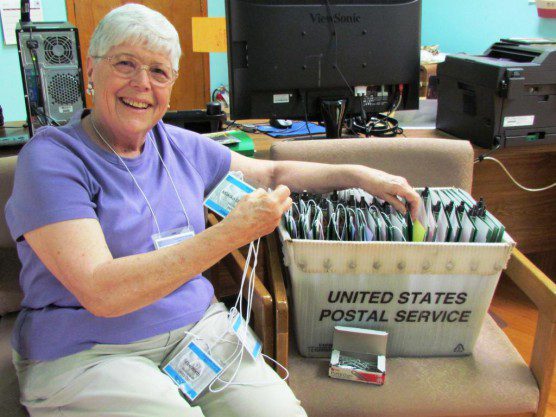
We are grateful for the help of so many people who contributed to making the conference run smoothly–like our “retired” (???) office manager Betty Brescia.
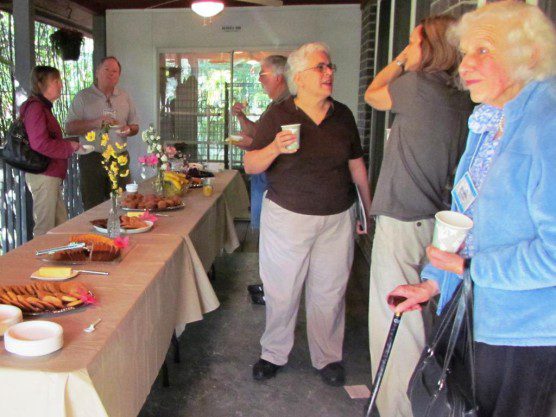
Attendees gathered on the porch of the IPPL office building for breakfast and lunch buffets Saturday and Sunday.
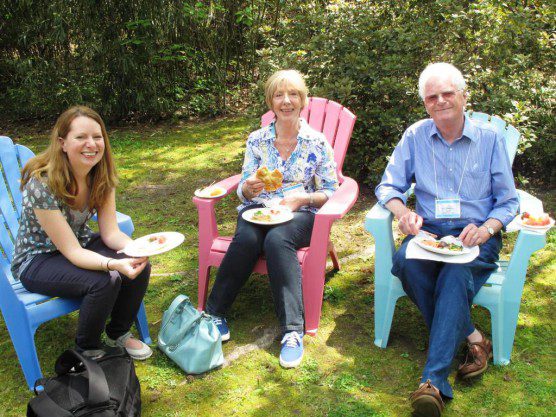
Picnic lunches were the order of the day during the lovely spring afternoons.
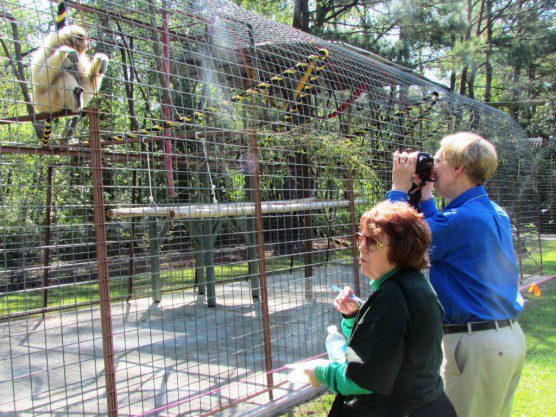
Attendees were able to take happy snaps of the IPPL gibbons to their hearts’ delight; here, Elizabeth shows off her good side.
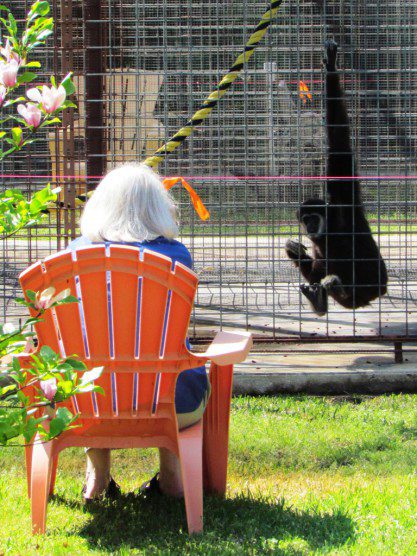
And there was time for quiet communing, too (here, with Blackie).
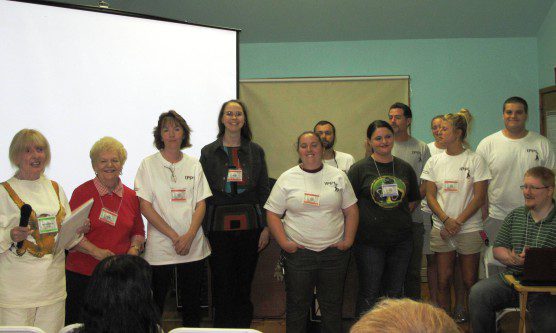
The whole IPPL staff worked hard to pull everything together!
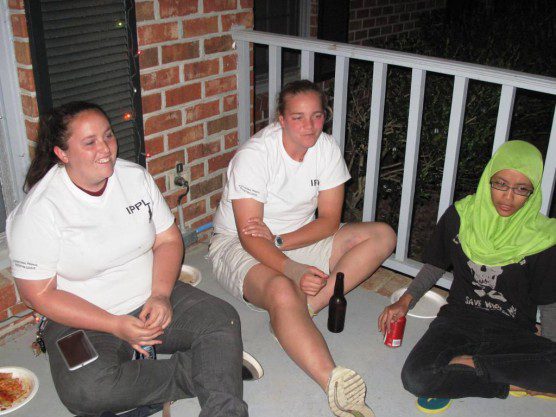
At last, Sunday evening’s pizza party!
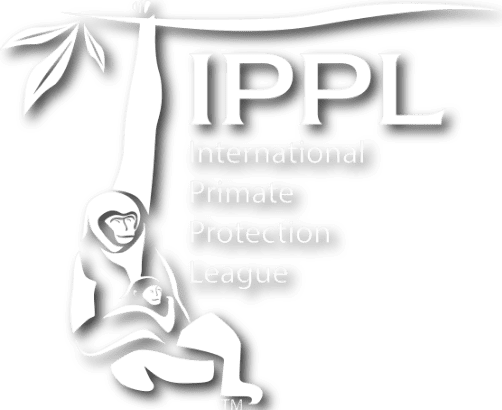

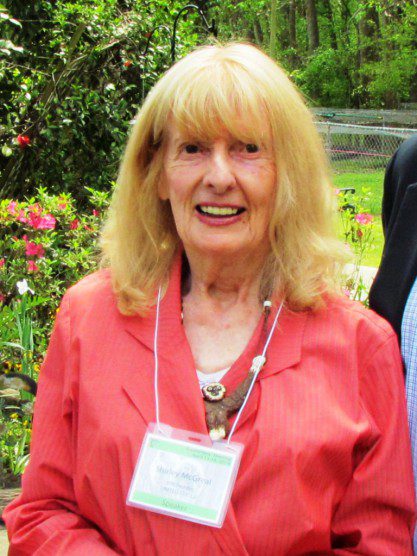
Congratulations Shirley, I would love to have joined you. Hopefully next year.
Hugs,
Olga